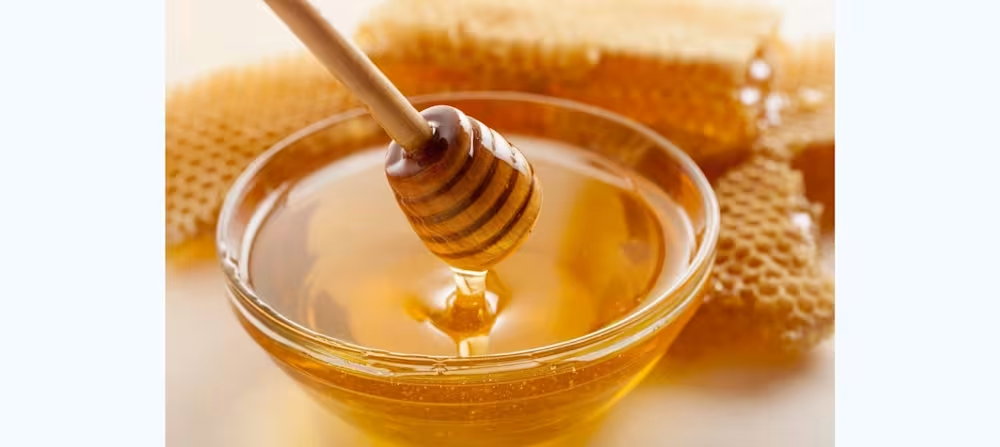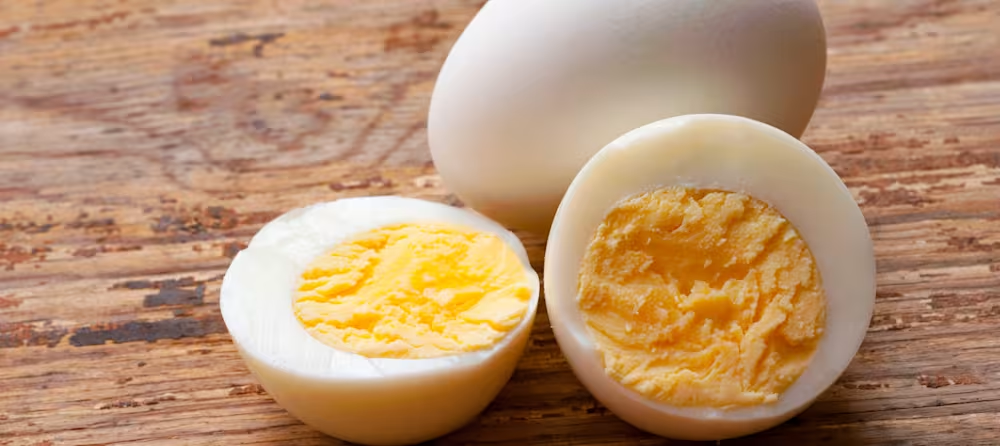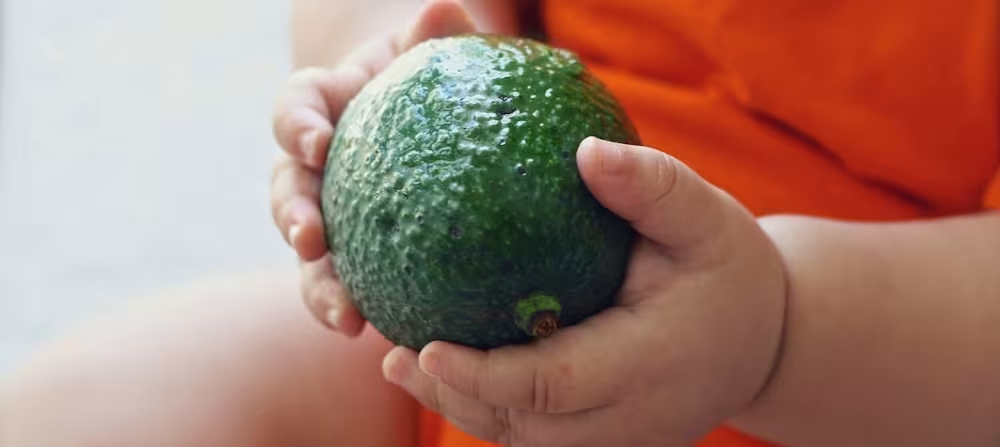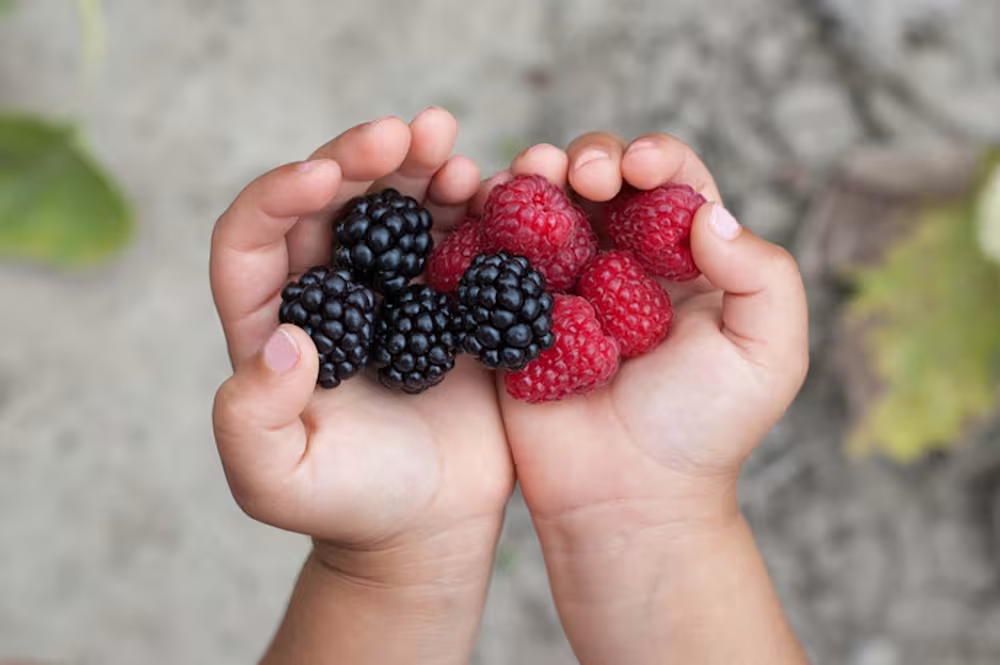Mushrooms for babies: When can babies eat mushrooms?
Updated Jan 12, 2026

Prepare to embark on an exciting culinary adventure with your little ones as we explore the wonders of mushrooms. These versatile and nutrient-packed delights not only add a burst of flavor to our dishes but also offer a myriad of health benefits for both kids and adults. So, let's dive in and discover how mushrooms can be a delightful addition to your little one's diet!
Can babies have mushrooms?
Wondering if mushrooms are a suitable food for your little bundle of joy? The answer is a resounding yes! Once your baby reaches around 6 months and begins to explore solid foods, you can introduce them to mushrooms. Make sure to wash mushrooms thoroughly and cook them so they are soft enough for babies to chew. Additionally, take care to ensure mushrooms come from a credible source as some wild mushrooms can be toxic if not chosen properly.
Is it healthy for babies?
Yes - mushrooms are healthy for babies! These fun guys offer many of the same nutritional benefits as other vegetables including being a source of fiber, vitamins, and minerals. Mushrooms boast an umami flavor to foods and may increase your baby’s chance of liking a dish.
Mushrooms’ nutrients for babies
When it comes to nutrition, mushrooms are probably best known as being one of the few food sources of vitamin D. In fact, the vitamin D content of mushrooms can be increased by exposing them to sunlight []. Mushrooms also contain beneficial amounts of B vitamins, selenium, copper, and potassium. They are also naturally low in sodium and gluten-free.
When can babies eat mushrooms?
Can babies between 6 to 9 months old eat mushrooms?
Yes - babies between 6 to 9 months old can eat mushrooms. This is a fantastic time to introduce these flavorful fungi, as babies tend to be more receptive to different tastes at an early age. Remember to serve mushrooms with a soft enough texture for this age group.
Can babies between 9 to 12 months old eat mushrooms?
As your baby progresses towards 9 to 12 months, they can continue to eat mushrooms. Now they may be able to eat them cut up into small, baby-friendly pieces as they develop their pincer grasp.
Can babies over 12 months old eat mushrooms?
Definitely - babies over 12 months old can eat mushrooms. You can continue offering mushrooms in meals, exploring different recipes and combinations!
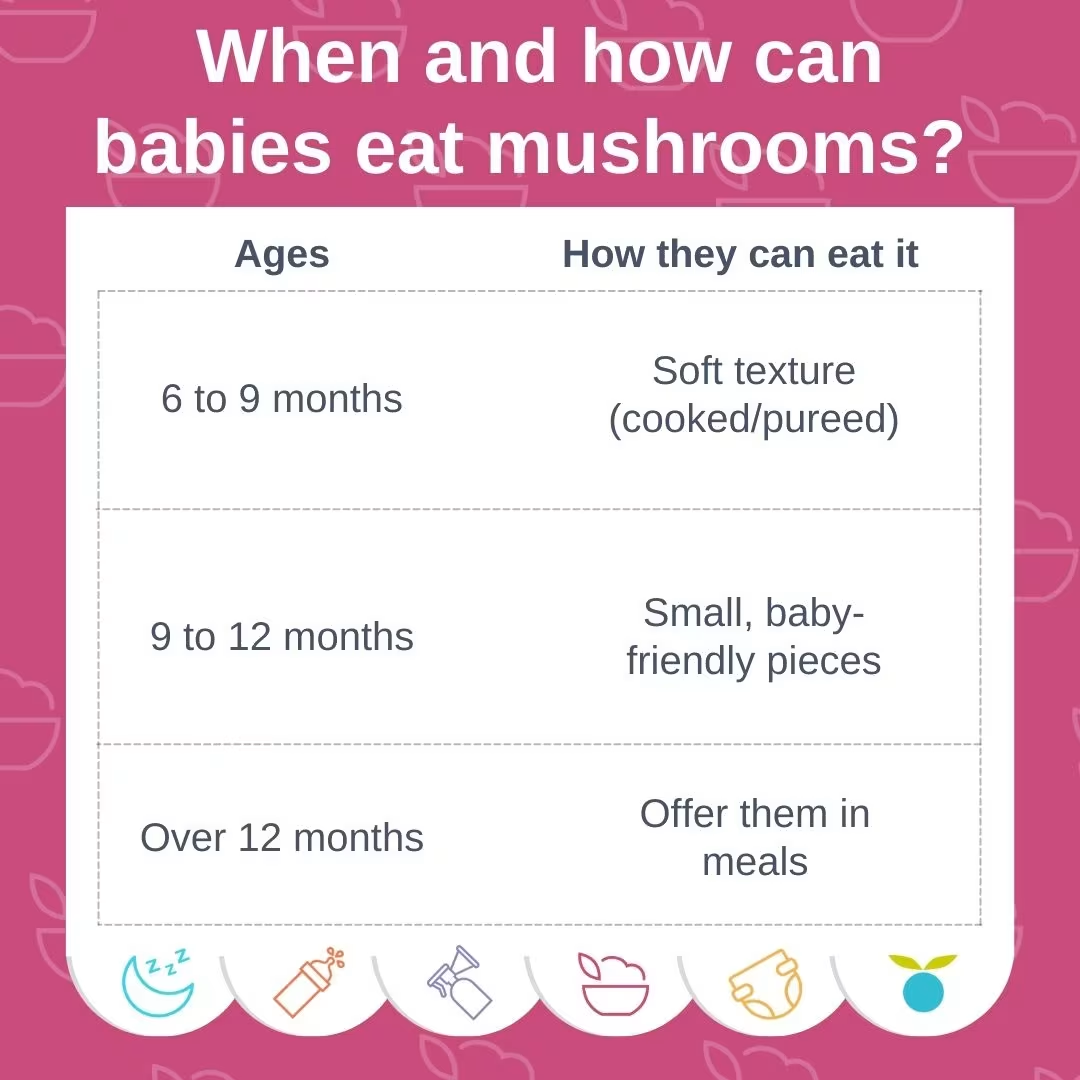
How to introduce mushrooms to your baby
No matter how you choose to introduce solids to your baby, it’s possible to add mushrooms to their diet from the start. It’s best to begin with cooked mushrooms as raw mushrooms may have a chewy texture that’s difficult for babies to chew. Don’t forget to give those mushrooms a wash as well before serving them to your baby to reduce the risk of foodborne illness.
Serving mushrooms for baby-led weaning
If you are embracing the word of , mushrooms can be sliced into strips (about the size of an adult pinky). Be sure to cook them until they are soft enough to be easily squished between your thumb and forefinger. Larger mushrooms such as portabella mushrooms may be easier for babies to pick up and eat.
Mushroom puree for babies
Interested in whipping up some delicious puree for your baby? Mushrooms can certainly be cooked and pureed for babies. Many times they are included alongside other vegetables or meat to make a more palatable flavor. Either make your own puree or check the supermarket for a premade option. If you’d like to serve mushrooms to your puree-eating baby, it’s certainly possible!
Is it a common allergen?
Mushrooms are not a common allergen. However, it is possible to have an allergy or intolerance to any food. If you suspect your baby may have an adverse reaction to mushrooms, contact your pediatrician right away.
Is it a choking hazard?
Rest assured, mushrooms are not considered to be a high-risk choking food. However, some mushrooms may have a chewy texture making them more difficult for babies to eat. Be sure to serve all mushrooms soft and in a safe size and shape to match your our little one's age and feeding ability.
Takeaway
Mushrooms are safe from around 6 months: Once your baby starts solids, well-cooked mushrooms can be introduced as long as they’re soft and served in an age-appropriate size.
Cooking matters: Always wash and cook mushrooms thoroughly since raw mushrooms can be tough to chew and harder for babies to manage.
They offer solid nutrition: Mushrooms provide fiber, B vitamins, minerals, and are one of the few food sources of vitamin D.
Texture and size are key: Serve mushrooms soft and cut appropriately to reduce choking risk, especially during early self-feeding stages.
Source them carefully: Stick to store-bought or clearly identified edible mushrooms — wild mushrooms can be dangerous and pose health risks to babies.
Share article:
Note: The content on this site is for informational purposes only and should not replace medical advice from your doctor, pediatrician, or medical professional. If you have questions or concerns, you should contact a medical professional.
1 Sources
Share article:


